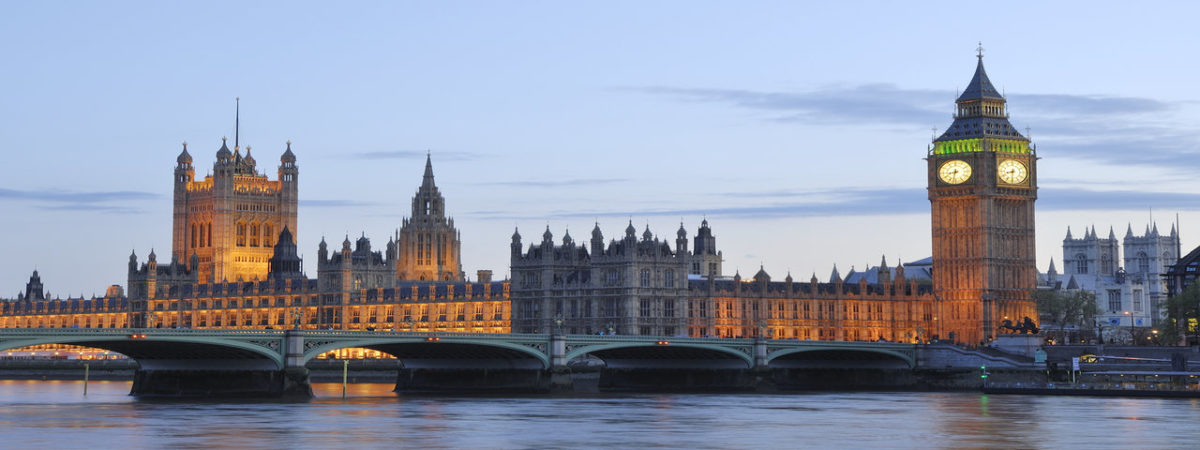Stop trying to make trade agreements “woke”
SUGGESTED



Yet this inherent neutrality of trade has recently come under fire. The World Trade Organization (WTO) has repeatedly stated that “trade must be gender-biased”, and the Buenos Aires Declaration on Trade and Women’s Economic Empowerment launched at the WTO Ministerial Conference in Buenos Aires in December 2017 demonstrates a clear commitment to that end. A modernised trade agreement between Canada and Chile that entered into force last year has a separate chapter dedicated to “gender mainstreaming” in trade. In the UK, the Women’s Budget Group has also called for more gender sensitivity in trade policy as Trade Secretary Liz Truss has set out the UK’s post-Brexit trade policy.
The connections between gender and trade come together under the umbrella of social justice. It is argued that conventional free trade agreements disproportionately benefit men. For instance, country-specific sectors that employ a high proportion of women are often not export-oriented, which is seen to put women at a disadvantage. Where imports are concerned, female-dominated industries sometimes find themselves on a losing end due to increased competition. Other considerations include common gender inequality concerns such as underrepresentation, the gender pay gap, unequal access to information, women’s public health, and a plethora of other gender-based biases.
In brief, proponents of gender-streaming in trade claim that in the context of trade, the interests of men prevail. While I can understand the sentiment – isn’t this yet another tale of misguided trade protection?
Governments have proven to be extremely creative when it comes to justifying their intervention in trade. Infant and/or declining industries protection, national defence, national security, “strategic” industries and job protection top the list of the most popular buzzwords that are invoked when governments want to impede trade. However, as trade agreements have progressed from a short and concise Cobden-Chevalier treaty of 1860 to wordy, complex and long documents, the scope of potential areas of intervention has expanded. Originally meant to remove barriers to trade between countries, trade agreements now aim to achieve a complete realignment not only on standards such as biotechnology but also on social values such as attitudes on gender. Channeling issues that are not intrinsically trade-related into trade has made it easier for governments to find an excuse to stick to protectionism.
An early example comes from Thailand, which, in 1966, prohibited tobacco imports, but authorised the sale of domestic cigarettes. The US complained such restrictions were inconsistent with GATT, and in 1990 they were removed. The crucial part of the story is that Thailand’s reasoning in favour of protectionism was gender-sensitive. It was claimed that the increased competition in cigarettes would lead to an increase in women’s tobacco consumption as some American cigarette brands – as opposed to those produced in Thailand – were specifically targeting women. The unintended consequences of this import prohibition, in particular, people’s freedom to choose, were clearly dismissed.
A rising tide lifts all the boats. Free trade has proved to be the most effective international development tool. It has done more to increase prosperity in developing parts of the world than any short-lived government-sponsored programme, mainly because of its impartiality. By putting cultural, national, and gender differences aside, international and regional trade has provided people all of the world with the opportunity to create value for each other.
However, it would be absurd to expect those to be exactly evenly distributed across all population subgroups. If you split society along some arbitrary dividing line – be that gender, geography, age, ethnicity, education level or whatever – it will always be possible to say that some group benefits more than others. Maybe the South will benefit more than the North, maybe Millennials will benefit more than Baby Boomers, maybe urban areas will benefit more than rural ones. Should we also include special sections in every trade deal to make them “North-friendly”, “Boomer-friendly”, or “rural-friendly”?
The whole point of free trade is that the benefits are dynamic. We cannot control, fine-tune or predict them. It may be true in a static, snapshot perspective that men will benefit more than women – but who knows what the economy will look like a decade or two after a trade deal has been concluded?
By obsessing over differences in the allocation of short-term gains and short-term costs, we risk losing sight of the bigger picture. Trade does not have to be “made” female-friendly. It already is. An open, competitive marketplace challenges prejudices, including about gender. As consumers, both men and women are driven by their personal preferences and budget constraints. Both are empowered when they are able to choose what they like best. More choices mean more personal control over one’s life. Women, as a key consumer group driving 70–80% of all consumption at a global level, are probably in that sense the main beneficiaries of the freedom that comes with unimpeded trade.
But even in the short term, claims that women need preferential treatment in trade relationships don’t stand up to scrutiny. In some developing countries such as Sri Lanka and Mexico (and formerly, Taiwan), it is already the case that export-oriented sectors are female-dominated too.
Trade is a great tool for empowerment. Thanks to trade’s impartiality, its outcomes are evenly distributed as it gives men and women in the developing and developed world freedom to make their own choices.
Tapping gender clauses into trade agreements won’t make all women want to become export-oriented entrepreneurs overnight not least because it is pretentious to assume to know what all women want. But eradicating trade barriers has certainly given them more control over their lives. Today it’s about what fruit out of five imported options to buy, tomorrow it’s about what career to choose. Trade is a gender-neutral tool of individual empowerment and should be seen as such.
1 thought on “Stop trying to make trade agreements “woke””
Comments are closed.




I am surprised an objective of the WTO is making trade more gender-biased, (“trade must be gender-biased” (para 2)). “Gender-based” would be more politically correct and consistent with the argument of the piece.